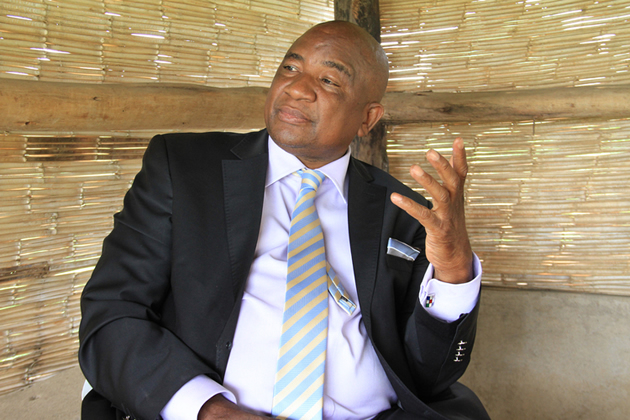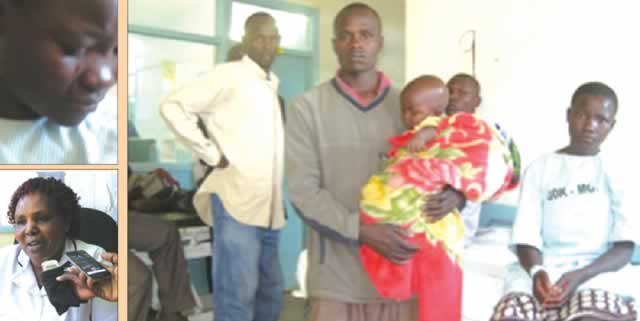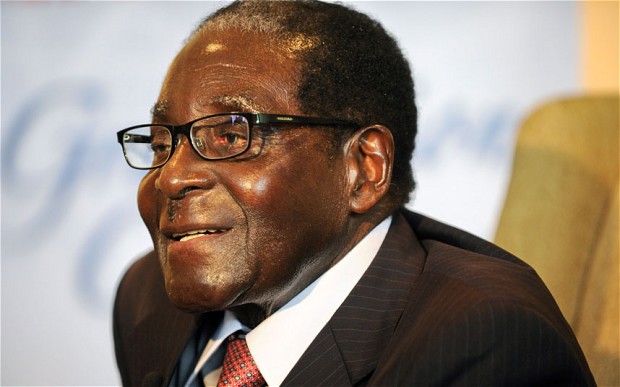Editorial Comment: Sponsors don’t own Zifa, Warriors

AFTER years of failing to woo partners into their corner, it’s refreshing to see that the new zifa board, led by Philip Chiyangwa, have already secured sponsors who are ready to inject funds to help the country’s football controlling body. Just a few months ago, as a bankrupt zifa staggered from one crisis to another, triggered by their financial challenges, there were even fears that the country’s football governing body was set to disintegrate.
Some Members of Parliament even called for zifa to be declared insolvent because the association had long stopped to service their debts and their property portfolio was being ripped apart by organisations who had provided a service, but hadn’t been paid.
The Messenger of Court was a regular visitor at 53 Livingstone Avenue, the ZIFA headquarters, attaching whatever they could lay their hands on and things got so messy that even the artificial surface, installed at the field at the zifa Village by Fifa to help develop football in this country, was also attached.
In that era of darkness, no company or individual, with some money to spare, wanted to be associated with zifa and, at the last count, the association was trapped in a debt that had risen to between $6 million to $7 million. Matters came to a head when the Warriors were expelled from the 2018 World Cup qualifiers, without kicking a ball, as punishment for zifa’s failure to pay Brazilian coach, Valinhos, who had guided our national team during the 2010 World Cup and Nations Cup qualifiers. fifa also warned that the Warriors would be barred from the 2022 World Cup qualifiers should zifa fail to pay the $180 000 they owed Belgian coach, Tom Saintfiet, who coached the Warriors for just a day before running into problems with the country’s immigration authorities for working without a work permit.
Against that grim background, it was difficult to see any light in that darkness that was engulfing Zimbabwe football, but the ousting of the ZIFA leadership, under Cuthbert Dube, and the coming in of a new team of leaders, led by Philip Chiyangwa, has brought a wave of optimism that the country’s number one sporting discipline can be saved.
The $1 million deal signed by Chiyangwa and businessman Wicknell Chivayo, enabling zifa to pay the debt owed to Saintfiet, was just what the doctor had ordered and we all celebrated when the businessman secured vehicles for Warriors coach, Callisto Pasuwa, and his Mighty Warriors counterpart, Shadreck Mlauzi, to use in their line of duty.
But while we salute Chivayo for leading the way and injecting about $250 000 into the zifa coffers so far, showing that he is a man of his word, we were taken aback by what he posted on his Instagram account as he announced he wanted to buy about 250 pairs of football boots for the Warriors.
While we hail him for his love of our national team, and his pleas to fellow businessmen and companies to come on board and help our national game, we are concerned about the kind of language that he used in that Instagram post.
For him to refer to Pasuwa as “my coach”, appears to send the wrong signal that, because he has acquired a vehicle for the coach and will be paying his monthly salary for the next two years, then the national coach has become his property or his worker.
For him to refer to the senior national team as “my Warriors”, simply because he is paying the salary of their coach, secured the car the gaffer is using and could be buying 250 pairs of boots for the players, appears to send the wrong signal that he now owns the team.
Sponsors, or partners, in football don’t own the brand that they are associated with and that is why you will never hear the Adidas chairman describing Manchester United as “my United”, or Louis Van Gaal as “my coach”, simply because the sportswear giant injected $1.3 billion into the Red Devils in their shirt sponsorship deal.
He could probably say that, within the walls of their boardroom meetings, but to put it on social media, where the message has a tendency of being misconstrued, will certainly never happen because, even though Adidas have injected a fortune into United, they don’t own the team or the players and coaching staff.
We are concerned that such language could drag us back to the dark days of Cuthbert Dube who appeared to give an impression that, because he was using his money to help our football, the game — and everything in it — belonged to him.
Dube had personalised the national game and, because of that, he became immune to any criticism or advise, preferring to do things his own way, because he felt that simply because he was the one putting in the money, then he should be the only one with a voice.
We don’t want to see the creation of some Dube clones in our national game because, given what we went through under the Harare business executive, we don’t want to see our football returning to those dark days.
The game is more important than any individual, something that even Sepp Blatter, the ousted FIFA president, has come to realise, after years of thinking that he was the be-all-and-end-all of world football.
We salute what Chivayo is doing but we also advise him to revise his language when he is posting things about the Warriors on social media and, if he had just said “our coach”, in reference to Pasuwa, and “our Warriors,” in reference to the national team, it would have made a huge difference and he would have been right on point. The Warriors belong to every Zimbabwean, from the poorest to the richest person, and they will never be personalised like a car’s number plate while the national coach also works for every Zimbabwean and not just certain individuals. It’s important that, as we take steps away from the darkness of the past few years, we should be sending the right signals that we have, indeed, turned the corner and what our ZIFA leaders, and their partners and sponsors say, is critical in defining our journey.










Comments